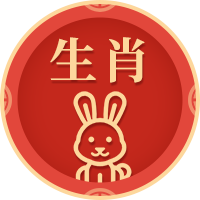如何以底蕴格局为基础起个好名字呢
- 作者: 郭瑶吉
- 来源: 投稿
- 2024-07-26
一、如何以底蕴格局为基础起个好名字呢
以底蕴格局为基础起名的步骤:
1. 确定核心价值观和目标:
考虑您希望名字传达的品质、价值观和抱负。
确定您希望名字在个人、职业和社会方面产生的影响。
2. 研究文化和历史:
探索您家族、文化和历史中的名字。
了解不同名字的含义和联想。
考虑与您价值观和目标相符的传统或现代名字。
3. 寻找有意义的词语:
确定与您核心价值观和目标相关的词语。
考虑具有积极含义、力量或优雅的词语。
探索不同语言和文化的词语,以获得更广泛的选择。
4. 结合词语和声音:
将有意义的词语组合起来,创造出独特且令人难忘的名字。
考虑名字的音节、节奏和发音。
确保名字朗朗上口,易于发音和记忆。
5. 考虑名字的长度和性别:
选择一个与您个人风格和偏好相符的长度。
考虑名字的性别,并选择一个与您的性别认同相符的名字。
6. 征求反馈:与家人、朋友或导师分享您的名字选择。
征求他们的反馈,以获得不同的观点和建议。
示例:以勇气和决心为基础:
勇毅(勇气)
坚毅(决心)
毅力(坚持)
以智慧和洞察力为基础:
明智(智慧)
洞察(洞察力)
睿智(明智)
以创造力和创新为基础:
创新(创造力)
灵感(灵感)
想象(想象力)
二、如何以底蕴格局为基础起个好名字呢女生
以底蕴格局为基础起好女生名字的方法:
1. 借鉴经典文学作品:
从古诗词、名著中汲取灵感,选择寓意深远、意境优美的词语,如“芷兰”、“清荷”、“若水”。
2. 融入历史文化元素:
参考历史人物、典故或神话传说,提取具有文化底蕴和象征意义的字词,如“昭君”、“文姬”、“嫦娥”。
3. 结合自然风光:从山川河流、花鸟虫鱼中寻找灵感,选择体现自然之美和生命力的字词,如“云溪”、“芷晴”、“朝露”。
4. 彰显个人品格:根据女孩的性格特点和期望,选择体现智慧、善良、坚韧等美好品质的字词,如“慧敏”、“仁慈”、“坚贞”。
5. 考虑字音字形:名字的字音应悦耳动听,字形应美观大方,避免生僻字或寓意不佳的字词。
6. 结合生辰八字:根据女孩的生辰八字,选择五行相生相合的字词,以达到阴阳平衡,带来好运。
示例:芷兰:借鉴《楚辞》中的“芷兰生幽谷,不以无人而不芳”,寓意高洁、淡雅。
清荷:取自“出淤泥而不染,濯清涟而不妖”,象征纯洁、坚韧。
若水:源于《道德经》中的“上善若水”,寓意包容、智慧。
昭君:借鉴历史人物王昭君,寓意美丽、贤淑。
文姬:取自蔡文姬,寓意才华横溢、坚强不屈。
嫦娥:源于神话传说,寓意美丽、神秘。
慧敏:体现智慧、灵敏。
仁慈:彰显善良、仁爱。
坚贞:寓意坚强、忠贞。

三、如何以底蕴格局为基础起个好名字呢英语
How to Choose a Name with Depth and Character
1. Consider the Meaning and Origin:
Research the etymology of potential names to understand their historical significance and cultural associations.
Choose names that evoke positive qualities, virtues, or aspirations.
2. Explore Literary and Historical References:
Draw inspiration from characters in literature, mythology, or history who embody the desired traits.
Consider names that have been associated with notable figures or events.
3. Pay Attention to Sound and Rhythm:
Choose names that have a pleasing sound and flow well when spoken.
Consider the rhythm and cadence of the name to create a memorable impression.
4. Reflect on Personal Connections:
Consider names that have special meaning to you or your family.
Choose names that honor loved ones or commemorate significant events.
5. Seek Inspiration from Nature:
Draw inspiration from the beauty and diversity of the natural world.
Choose names that evoke elements, animals, or celestial bodies.
6. Consider Cultural Influences:
Be aware of the cultural context in which the name will be used.
Choose names that are appropriate and respectful of different cultures.
7. Avoid Common or Overused Names:
While popular names may be familiar, they can lack originality and depth.
Consider unique or less common names that stand out from the crowd.
8. Seek Feedback and Reflection:
Share potential names with trusted friends or family members for their input.
Take time to reflect on the names and consider how they align with your values and aspirations.
Remember:A name is a powerful symbol that can shape a person's identity and destiny.
By choosing a name with depth and character, you can create a lasting legacy that reflects your values and aspirations.
四、如何以底蕴格局为基础起个好名字呢女孩
以底蕴格局为基础起好女孩名字
1. 借鉴经典文学作品
诗经:《诗经》中蕴含着丰富的文化底蕴,如“静姝”、“婉兮”、“采薇”等。
楚辞:《楚辞》以其浪漫主义色彩著称,如“湘君”、“湘夫人”、“婵娟”等。
唐诗宋词:唐诗宋词中不乏优美动人的女子名字,如“李清照”、“苏小妹”、“柳如是”等。
2. 提取历史人物美德
贤德:如“文姬”、“昭君”、“班昭”等。
才华:如“李清照”、“卓文君”、“谢道韫”等。
气节:如“花木兰”、“秦良玉”、“秋瑾”等。
3. 借用自然元素花卉:如“牡丹”、“芍药”、“荷花”等。
动物:如“凤凰”、“白鹭”、“锦鲤”等。
山川:如“青黛”、“碧水”、“云霞”等。
4. 结合寓意吉祥的字词
福:如“福慧”、“福安”、“福乐”等。
禄:如“禄星”、“禄寿”、“禄丰”等。
寿:如“寿康”、“寿安”、“寿宁”等。
5. 考虑字音字形字音:名字读起来要朗朗上口,避免拗口或不和谐的音调。
字形:名字的字形要美观大方,笔画不宜过多或过于复杂。
示例:静姝:取自《诗经》,意为文静美好。
婉兮:取自《诗经》,意为柔美动人。
采薇:取自《诗经》,意为采摘薇菜,寓意勤劳朴实。
湘君:取自《楚辞》,意为湘水之神,寓意高洁清雅。
婵娟:取自《楚辞》,意为月亮,寓意美丽皎洁。
李清照:取自唐代女词人,寓意才华横溢。
苏小妹:取自宋代才女,寓意聪慧灵秀。
柳如是:取自明末清初女诗人,寓意风姿绰约。
牡丹:寓意富贵吉祥。
白鹭:寓意纯洁高雅。
福慧:寓意福气智慧。
禄星:寓意官运亨通。
寿康:寓意健康长寿。













